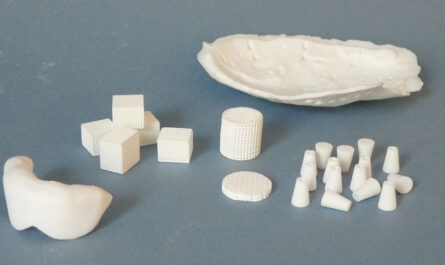It is the chemical compound with the formula FeSO4(H2O)x, where x can range from 0 to 7. It is widely used as a source of iron and as a reducing agent. In living organisms, it is better known as iron(II) sulfate.
Chemical Properties
Iron (II) sulfate is a greenish-white solid that is soluble in water. When fully hydrated, iron (II) sulfate contains seven waters of hydration and has the formula FeSO4·7H2O. It forms green crystals that are stable in dry air but readily hydrolyze in the presence of water to varying degrees, depending on the pH and other conditions. Iron (II) sulfate decomposes upon heating to yield iron(III) oxide and sulfur dioxide.
Uses of Ferrous Sulfate
Some common applications of iron (II) sulfate include:
Water Treatment
Iron (II) sulfate is regularly added to public water supplies to improve the taste and help remove hydrogen sulfide gas and sediment. It also enhances iron and manganese precipitation for filtration removal from water.
Agriculture
As a source of iron, Ferrous Sulfate is widely applied as a fertilizer for plants. It prevents iron deficiency chlorosis in crops and aids in photosynthesis. It is also used to treat alkalinity in soils.
Wastewater Treatment
In sewage systems and industrial wastewater, iron (II) sulfate acts as a coagulant to remove phosphorus, organic matter, and to neutralize odors during the treatment process. It forms a coagulant complex that binds suspended solids.
Laboratory Applications
In analytical chemistry labs, iron (II) sulfate is frequently used for acid-base titrations and as a reducing agent. It has applications in colorimetric analysis and biochemical assays as well.
Health Benefits of Ferrous Sulfate
The main health benefit of iron (II) sulfate comes from its iron content. Iron is an essential nutrient that our bodies need to produce hemoglobin andmyoglobin. Some key points on the health benefits:
Anemia Treatment
Iron (II) sulfate supplements provide bioavailable iron to help treat and prevent iron-deficiency anemia. This can improve weakness, fatigue and other anemia symptoms.
Cognitive Development
Adequate iron intake from sources like iron (II) sulfate is important for brain and nervous system development in infants and children. Iron plays a role in dopamine and myelin production.
Pregnancy Support
Pregnant women have higher iron needs to support fetal growth and development. Iron (II) sulfate supplements help meet those needs and reduce anemia risks for mothers and babies.
Immune Function
Iron is necessary for proper immune cell formation and function. Supplementing iron sources can strengthen immune defenses against infection and disease.
Energy Levels
By forming hemoglobin in red blood cells, iron transport oxygen throughout the body to energize tissues. This enhances athletic performance and general well-being.
Precautions with Ferrous Sulfate
While generally safe when taken as directed, Ferrous Sulfate can cause side effects like nausea, constipation or black stools in some individuals. It is important not to exceed recommended dosages. People with hemochromatosis should avoid long-term supplementation without medical guidance. Iron (II) sulfate can also stain teeth if regularly chewed or sucked on. Pregnant women should only take it under medical supervision.
Iron (II) sulfate is a multifaceted inorganic compound with various industrial, agricultural, and clinical applications. As an iron supplement, it provides bioavailable iron to support health, combat anemia, and maximize cognitive and physical potential, especially for vulnerable groups. With proper precautions, iron (II) sulfate can be a beneficial addition to diet and lifestyle.
*Note:
1. Source: Coherent Market Insights, Public sources, Desk research
2. We have leveraged AI tools to mine information and compile it



